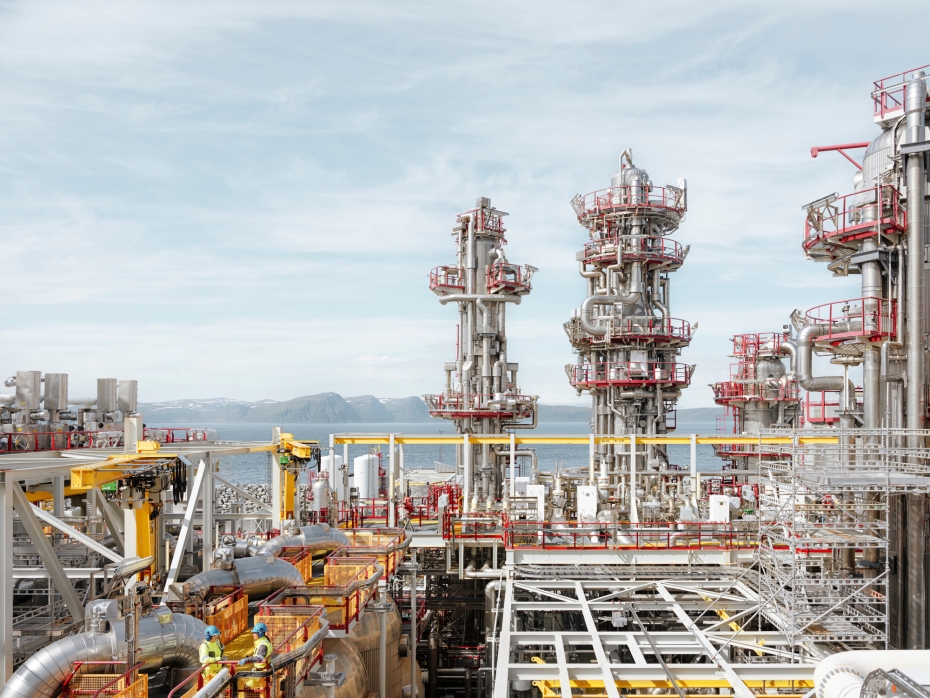
The future of gas
One of the key areas of the Academy is Science advice, and the aim is to provide high quality, timely and independent scientific advice to support policy-making activities.
Science based decisions
The Academy is cooperating with other European academies to develop Science advice activities within the areas of Mathematics, Natural Sciences, Humanities and Social Sciences.
For the areas of Natural Sciences, this cooperation takes place within the EASAC network, while for the areas of Humanities and Social Sciences, the bulk of the cooperation takes place within ALLEA.
The Norwegian Technical Science Academy cooperates with other academies under the Euro-CASE umbrella.
These three European Academy Networks, in addition to Academia Europaea and FEAM, constitute the SAPEA (Science Advice for Policy by European Academies) consortium.
SAPEA brings together the knowledge and expertise of fellows from over 100 Academies and Learned Societies in over 40 countries across Europe, spanning the disciplines of engineering, humanities, medicine, natural sciences and social sciences.
The consortium supports the EU Commission with high quality, timely and independent scientific advice in terms of reports for its policy-making activities.
Selected collection of reports
We prioritize selected international reports with special relevance for Norway, and take a closer look at their specific consequences for our country.
Based on these reports, Academy meetings and seminars are being arranged with following science advice reports published on our website.
Taking an active role
There are already several established Science advice-structures in Norway, both formal and informal, to provide Science advice for policy development. Even so, the Academy has identified an open space, where we take an active role, based on our:
- independence
- members’ broad competence and their extensive networks, both nationally and internationally
- tradition from a knowledge based and acknowledged rostrum
- academy organisations memberships
The Academy’s objective is to become an important knowledge provider, and our Science advice effort is a significant step in this direction.
The Norwegian Academy of Science and Letters' Science advice committee together with NTRANS invite to a seminar discussing the future of gas in the EU, based on the EASAC report Future of Gas.
EASAC’s report “Future of Gas” highlights the extremely high global warming potential of largely unrecorded methane leakages along the whole natural gas supply chain. To mitigate climate change, it is crucial to stop using all fossil fuels and to massively ramp up renewable electricity production.
For a long time, natural gas has been seen as the ideal bridge from coal on the road towards net-zero carbon emissions by 2050. In some countries, natural gas has become the main fuel to generate electricity. The EASAC report makes clear that this is a dead-end road. The report also weighs the possibilities of carbon capture and storage (CCS) and nuclear, and it urges that policy-makers, energy suppliers, energy users, and the finance sector must now work together to secure adequate supplies of clean energy while rapidly phasing out the use of fossil fuels.
What does this mean in reality? And what actions are being taken?
Programme
10:00 – 11:15 The EASAC report Future of Gas
William Gillett, EASAC Energy Programme Director
Anne Neumann (NTNU) Co-Chair of the EASAC working group that was responsible for producing the Future of gas report
Comments by:
Andris Piebalgs, Florence School of Regulation, former EU Commissioner of Energy
Anne-Sophie Corbeau (Columbia University)
Q&A session
11:15 – 12:15 Hydrogen and ammonia
11:15 – 11:25 Anders Strømman (NTNU): E-fuels and the Energy System Transition
11:25 – 11:35 Nils Røkke, Director HydrogenI
11:35 – 11:45 Christoph Stemmler, Senior manager, Project Enabling – Hydrogen, SEFE
11:45 – 11:55 Ben McWilliams, Bruegel
11:55 – 12:15 Q&A session
12:15 – 13:00 Lunch
13:00 –14:00 Decarbonizing the gas demand side
13:00 – 13:10 Asgeir Tomasgard (NTNU): Interplay between renewables, hydrogen & natural gas
13:10 – 13:20 Konstantin Löffler (TU Berlin): Integrated energy system insights
13:20 – 13:40 Øystein Ulleberg (IFE): H2 and NH3 for use in Maritime Transport
13:40 – 13:50 Vibeke Rasmussen, SVP Product Management & Certification, Yara Clean Ammonia
13:50 – 13:53 Antti Kosonen (LUT), Professor, Lahti University of Technology (intervention)
13:53 – 14:15 Q&A session
14:15 – 14:45 Coffee break
14:45 – 15:45 Security of supply
14:45– 14:50 William Gillett, Energy Programme Director, EASAC: New project on security of sustainable energy supply
14:50 – 15:00 Franziska Holz (DIW Berlin): Security of supply in Europe with pipeline gas and LNG
15:00 – 15:10 Svein-Erik Losnegård, Advisor New Value Chains, Gassco: Germany-Norway energy cooperation joint feasibility study – H2 and CO2 value chain
15:10 – 15:20 Ulrik Olbjørn, Project Director for Clean Hydrogen to Europe, Equinor: Natural gas and hydrogen towards 2040
15:20 – 15:30 Dennis Wehmeyer, Head of Hydrogen & Sustainability, GASCADE Gastransport: The German core network: Kickoff for the European hydrogen economy
15:30 – 15:45 Q&A session
15:45 – 16:15 Panel discussion with policy makers
Benjamin A. Notkevich (Ap) and Ola Elvestuen (V) discuss with Franziska Holz and Anne-Sophie Corbeau
Moderator:
Franziska Holz
Moderator discussion with policy makers:
Asgeir Tomasgard
Registration
For those who wants to attend the meeting in person in the Norwegian Academy, please sign up here.
Registration is necessary for the lunch arrangement.
Watch the recording


